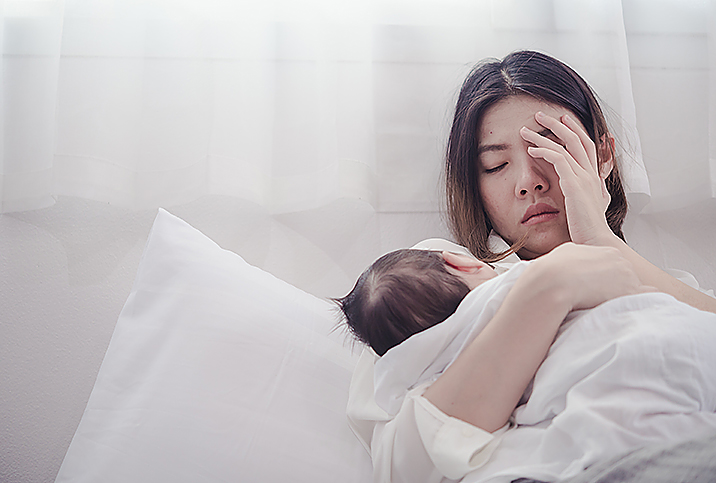Postpartum Depression and Sex Drive

Postpartum depression is defined as a severe mood shift that occurs after having a child, according to the Mayo Clinic. As many as 50 to 70 percent of all women experience depressed mood within days after childbirth, and that mood can progress to postpartum depression in some new mothers. Many women with postpartum depression report depressive symptoms that started prior to their deliveries.
This disorder usually involves feelings of sadness, worthlessness and anxiety about child-rearing. Parents with financial issues or who have medical complications during childbirth may be particularly susceptible.
Though not often discussed, postpartum depression occurs in approximately 15 percent of women. In certain cases, postpartum depression can progress to postpartum psychosis, a more serious condition that results in dissociation along with extreme distress and potential suicidal ideation and/or homicidal ideation toward their child or partner. This diagnosis requires urgent medical treatment.
How postpartum depression affects sex drive
Depression is well documented in clinical settings to reduce sex drive, and it seems postpartum depression is no different. Women suffering from this form of depression often feel overwhelmed by the intensity and general lifestyle changes of having a child. What seems to mark postpartum depression as having a higher propensity for a lower sex drive is the way it can erode women's sexual confidence and self-image: Women who suffer these feelings often feel less inclined to engage in sex.
The reasons for sexual dysfunction after childbirth are also linked to nonnatural forms of delivery. According to one scientific review, instances of vaginal dryness and lack of arousal during sex are documented at higher percentages for women who had an operative vaginal delivery (OVD) or a cesarian section (C-section) performed. These alternative methods of delivery have higher rates of injury to the mother, including perineal tearing or nerve and soft tissue damage. Injuries such as these can drastically affect normal sexual function and arousal.
Partner communication can reduce symptoms
As with many relationship issues, lack of sex drive is something that can be alleviated and understood better through methods of open communication. It's important to note that women are not the only ones who can be affected by postpartum depression; men are susceptible, too. And like women, external factors such as financial hardship, lack of intimacy, decreased sleep and stress about a new baby can worsen the symptoms of postpartum depression for the father.
Even if men are not experiencing postpartum depression, they can feel its effects. In a single study focused on heterosexual relationships, 33 percent of men reported decreased sex drive and emotional frustration while attempting to provide postdelivery support for their female partner. The men also felt compelled by traditional societal roles to refrain from expressing these feelings of discontentment, which might serve to fuel sexual dysfunction and relationship problems for both partners when dealing with postpartum depression.
Postpartum depression is a serious condition that can alter the way a woman views herself, her new child and her intimate relationship. Though the exact causes of this mental disorder are uncertain, this form of depression can severely diminish sex drive in women recovering from delivering a baby.
If you or your partner believe you may be experiencing postpartum depression, the best advice is to talk to a therapist and/or a doctor.

















